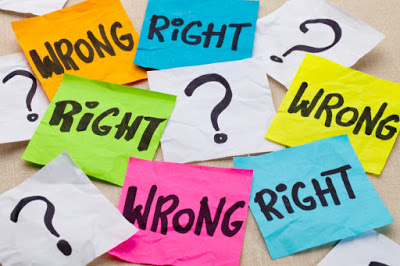The tension between culture and morality seems to be ever-present in The Good Earth, but I think it reaches a climax when Lotus enters the picture. I of course think that Wang Lung committing adultery is morally wrong, but these cultural questions still naggingly tug in the back of my mind. Would I have felt this way if I lived in China during this time? Is it right for me to think something that could be considered a “cultural practice” of someone else is immoral?
 To get a bit personal, when I talk about my time living in Tonga, I was constantly faced with the question, “Do I believe this is right or wrong because of the way I was raised, or is it right or wrong because of a universal set of morals that all humans share?” The best example of these tensions for me is the topic of children. To a Tongan, a child sits at the lowest point of the social hierarchy. This means that children eat last at meals, children do much of the intensive house work, and children are often treated with a general sense of disparagement. Coming from a culture that dotes on children, where families often treat children like kings and queens, this was jarring to say the least. At times, this social structure was sadly made manifest through overly-harsh corporeal punishments at home or school that I would consider physical abuse. I of course condemn those actions as morally wrong to this day. However, as time passed, I began to realize that things weren’t so black and white. I soon began to understand some positive aspects of these expectations that my cultural predisposition had prevented me from noticing. These norms usually mean that children are raised with an inherent, near automatic respect for their elders. They do not shy away from hard work, nor do they complain when they are asked to do something. The longer I lived there, the more I began to realize how much my culture had influenced my moral standing on how I deemed children should be treated. And when I left Tonga, I no doubt felt even more uncertain about these questions and many others than when I first arrived.
To get a bit personal, when I talk about my time living in Tonga, I was constantly faced with the question, “Do I believe this is right or wrong because of the way I was raised, or is it right or wrong because of a universal set of morals that all humans share?” The best example of these tensions for me is the topic of children. To a Tongan, a child sits at the lowest point of the social hierarchy. This means that children eat last at meals, children do much of the intensive house work, and children are often treated with a general sense of disparagement. Coming from a culture that dotes on children, where families often treat children like kings and queens, this was jarring to say the least. At times, this social structure was sadly made manifest through overly-harsh corporeal punishments at home or school that I would consider physical abuse. I of course condemn those actions as morally wrong to this day. However, as time passed, I began to realize that things weren’t so black and white. I soon began to understand some positive aspects of these expectations that my cultural predisposition had prevented me from noticing. These norms usually mean that children are raised with an inherent, near automatic respect for their elders. They do not shy away from hard work, nor do they complain when they are asked to do something. The longer I lived there, the more I began to realize how much my culture had influenced my moral standing on how I deemed children should be treated. And when I left Tonga, I no doubt felt even more uncertain about these questions and many others than when I first arrived.
I know we talked about some pretty controversial issues in our discussion on this subject in class. But now I’d like you to really reflect on these tensions for yourself, since this is such an important focus for this unit. Think of this as a way to share some of our “final thoughts” in response to our class discussion on culture and morality, and write a blog entry addressing some (not all) of these questions: To what extent do you think our morals are defined by our home cultures? Do you think it is ever appropriate to say that the traditions or values of another culture are immoral? Have you had any cross-cultural experiences in your own life that made you realize that perhaps what is considered right and wrong in your own culture may not be universal? Have you wrestled with these tensions as you read The Good Earth as well? (remember – these blogs are always better when you do some personal storytelling!)
And remember, when say “morality,” I’m talking about norms that might be deemed polite or improper in a certain cultural context. I’m literally talking about good and evil–about right and wrong.